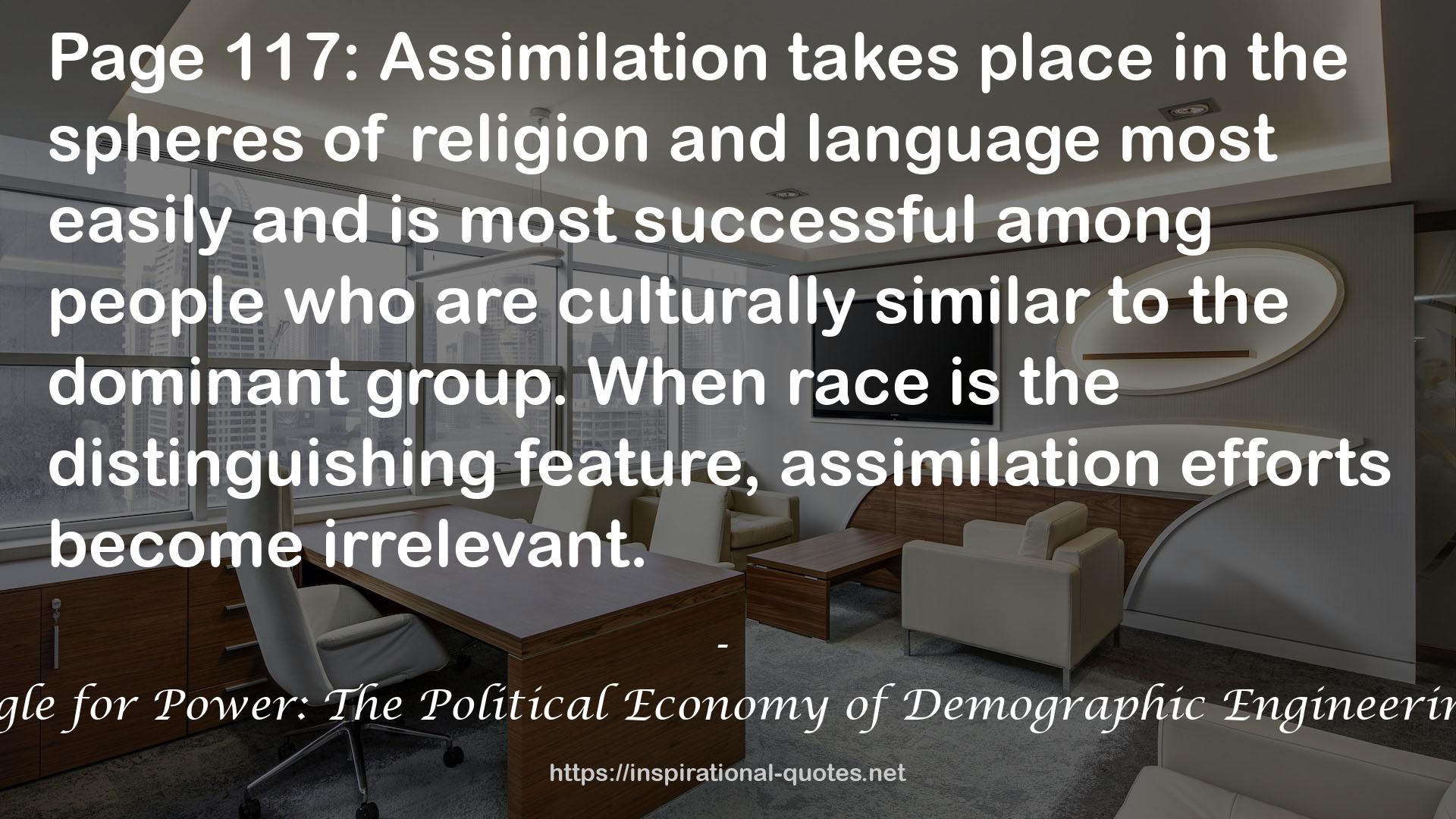The Demographic Struggle for Power: The Political Economy of Demographic Engineering in the Modern World QUOTES
 The Demographic Struggle for Power: The Political Economy of Demographic Engineering in the Modern World
The Demographic Struggle for Power: The Political Economy of Demographic Engineering in the Modern Worlddetail
SOME WORKS
- Invisible Monsters
- The Fire Next Time
- The Lover's Dictionary
- Selected Letters
- A Knock at Midnight: Inspiration from the Great Sermons of Reverend Martin Luther King, Jr.
- Antony and Cleopatra
- Henry and June: From "A Journal of Love": The Unexpurgated Diary of Anaïs Nin, 1931-1932
- The Wicked King (The Folk of the Air, #2)
- Romeo and Juliet
- What a Dragon Should Know (Dragon Kin, #3)
